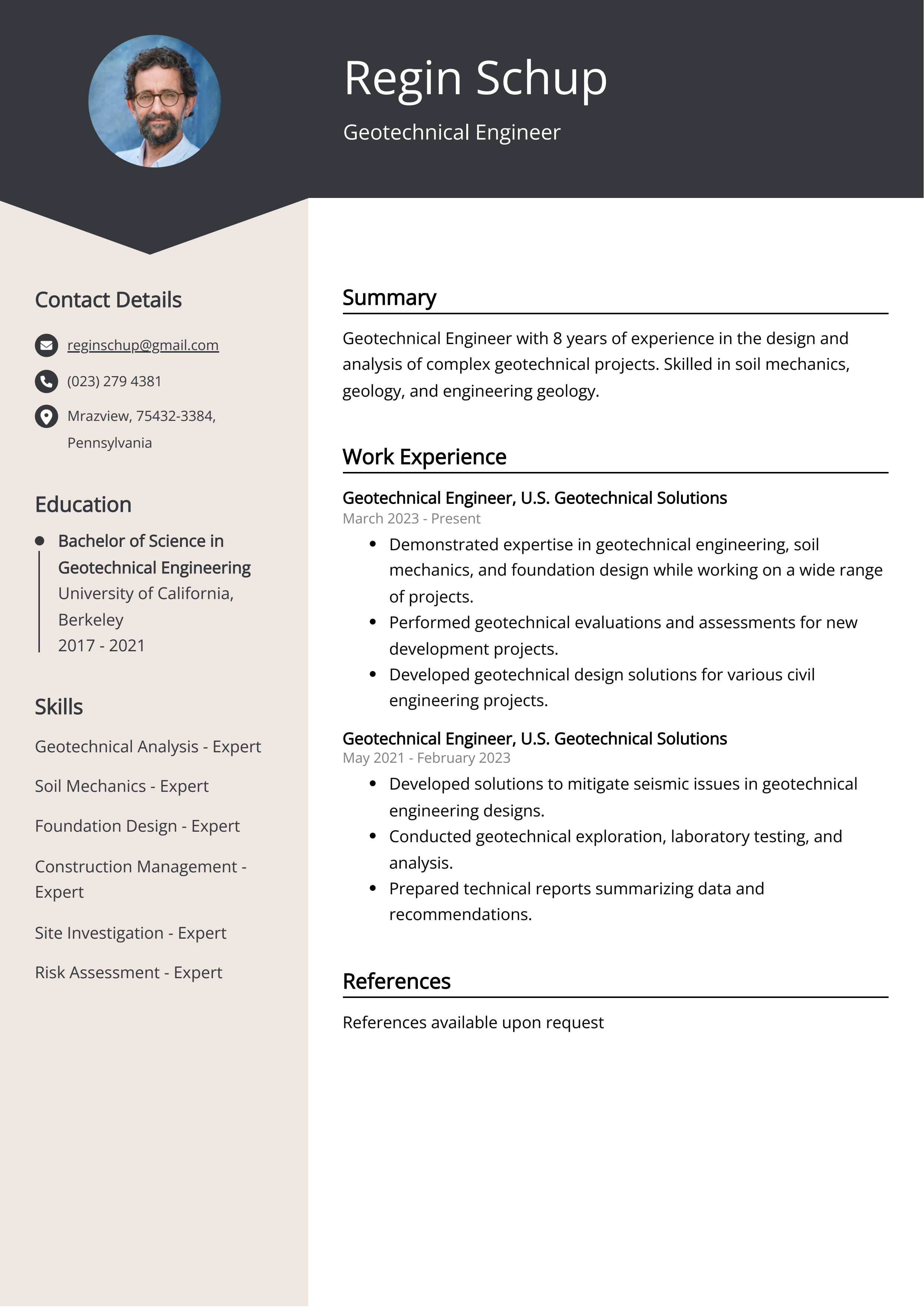More About Geotheta
More About Geotheta
Blog Article
The Ultimate Guide To Geotheta
Table of ContentsA Biased View of GeothetaGeotheta Can Be Fun For EveryoneGeotheta Can Be Fun For AnyoneTop Guidelines Of GeothetaGeotheta - An Overview

They perform website investigations, accumulate samples, perform laboratory tests, and assess information to evaluate the viability of the ground for building jobs - Consulting Engineer. Based upon their findings, geotechnical designers give suggestions for structure style, incline security, retaining frameworks, and reduction of geotechnical risks. They team up with various other professionals, such as architects, architectural engineers, and construction groups, to guarantee that geotechnical considerations are incorporated into the general job layout and execution
By examining the behavior and residential or commercial properties of dirt and rock, they can determine prospective geotechnical hazards such as landslides, dirt negotiation, or incline instability. Their competence assists stop failures or crashes that could endanger lives and building. Right here are some comprehensive tasks and obligations of a geotechnical designer: Site Investigation: Geotechnical designers conduct site investigations to gather data on subsurface conditions.
They analyze the information to comprehend the homes and habits of the dirt and rock, including their strength, leaks in the structure, compaction characteristics, and groundwater problems. Geotechnical Evaluation and Design: Geotechnical designers analyze the information accumulated during site examinations to evaluate the stability and viability of the website for construction projects. They carry out geotechnical estimations and modeling to assess elements such as birthing capability, settlement, incline stability, lateral earth stress, and groundwater circulation.
The Ultimate Guide To Geotheta
Foundation Layout: Geotechnical engineers play a vital duty in designing foundations that can securely sustain the intended framework. They analyze the soil conditions and lots requirements to identify the proper structure type, such as superficial foundations (e.g., footings), deep foundations (e.g (http://prsync.com/geotheta/)., piles), or specialized methods like dirt renovation. They think about elements such as settlement restrictions, bearing capacity, and soil-structure communication to create optimal structure styles
They assess construction strategies, monitor website activities, and conduct field evaluations to verify that the style suggestions are adhered to. If unexpected geotechnical problems emerge, they examine the situation and provide recommendations for remediation or changes to the style. Threat Analysis and Mitigation: Geotechnical designers evaluate geotechnical dangers and risks related to the job site, such as landslides, liquefaction, or dirt erosion.

Cooperation and Interaction: Geotechnical engineers work very closely with various additional reading other specialists involved in a job, such as architects, structural engineers, and building and construction teams. Reliable interaction and collaboration are essential to integrate geotechnical factors to consider right into the total job design and building process. Geotechnical engineers provide technological competence, solution inquiries, and guarantee that geotechnical requirements are met.
All About Geotheta
Here are some sorts of geotechnical designers: Foundation Engineer: Structure engineers specialize in developing and assessing foundations for structures. They examine the dirt conditions, tons demands, and website characteristics to figure out the most proper foundation kind and style, such as shallow foundations, deep foundations, or specialized strategies like heap structures.
They assess the elements influencing slope stability, such as soil residential properties, groundwater conditions, and incline geometry, and create strategies to stop incline failings and reduce threats. Earthquake Engineer: Earthquake designers concentrate on evaluating and developing structures to stand up to seismic pressures. They analyze the seismic danger of a website, review dirt liquefaction potential, and create seismic style requirements to make sure the security and durability of frameworks throughout earthquakes.
They do area screening, accumulate examples, and examine the gathered data to define the soil properties, geologic formations, and groundwater conditions at a website. Geotechnical Instrumentation Designer: Geotechnical instrumentation engineers concentrate on surveillance and gauging the actions of soil, rock, and structures. They mount and preserve instrumentation systems that monitor factors such as dirt settlement, groundwater degrees, slope motions, and architectural displacements to assess efficiency and offer early cautions of prospective issues.
Geotheta Things To Know Before You Get This
They perform examinations such as triaxial examinations, loan consolidation examinations, straight shear tests, and leaks in the structure tests to collect information for geotechnical evaluation and style. Geosynthetics Designer: Geosynthetics designers focus on the layout and application of geosynthetic materials, such as geotextiles, geogrids, and geomembranes. They use these products to boost dirt security, strengthen inclines, provide drain solutions, and control disintegration.
They tend to be investigative individuals, which implies they're intellectual, introspective, and analytical. They are interested, systematic, sensible, logical, and sensible. Some of them are additionally social, meaning they're kind, charitable, participating, patient, caring, practical, understanding, tactful, and pleasant - Geo Tech Engineering.
In the workplace environment, geotechnical designers utilize specialized software application tools to execute estimations, develop styles, and analyze information. They prepare records, evaluation project specifications, communicate with customers and group participants, and coordinate task activities. The workplace setting offers a helpful setting for research study, analysis, and cooperation with various other professionals involved in the task.
The Best Strategy To Use For Geotheta
They frequently visit project websites to conduct website investigations, assess geotechnical problems, and gather data for evaluation. These brows through involve traveling to different areas, in some cases in remote or tough terrains. Geotechnical engineers might carry out dirt tasting, conduct tests, and screen building and construction activities to make certain that the geotechnical aspects of the project are being carried out appropriately.
Geotechnical designers also work in specialized geotechnical laboratories. Geotechnical lab engineers work thoroughly in these settings, handling screening equipment, operating tools, and recording data.
Report this page